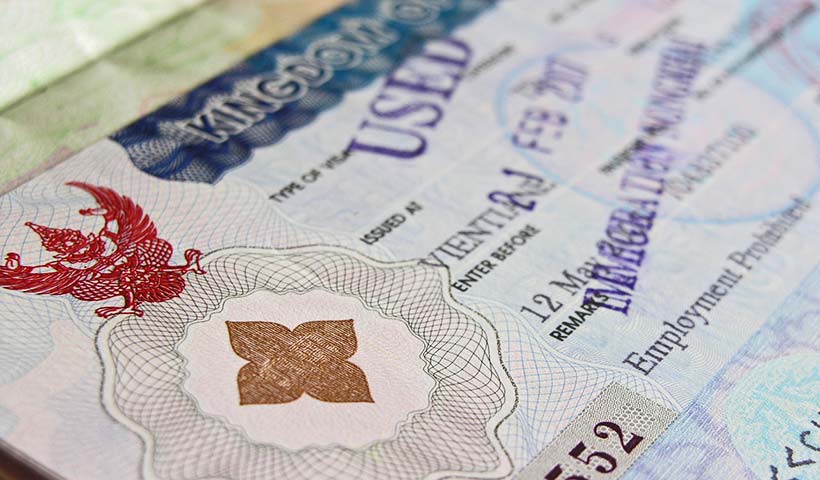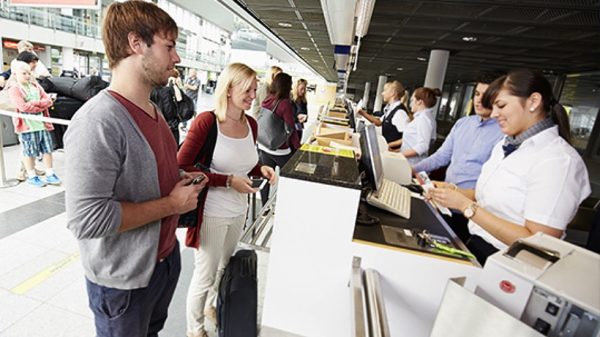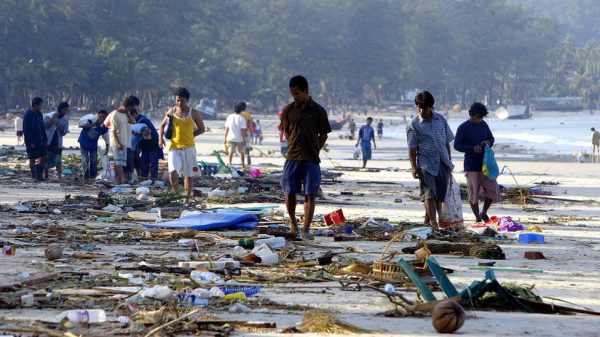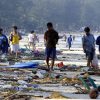…and probably inside Thailand as well.
Red flags are appearing at many foreign Thai consulates and embassies which process foreigner visas. Increased flights, arrivals and the timing with the high season has seen queues and waiting times starting to cause problems.
Visa applications coming through the Royal Thai Consulate in Penang, for example, have caused hundreds of applicants to be turned away this week alone. The consulate is a popular destination for foreigners staying in southern Thailand and usually receives hundreds of visits and applications each day in their newly refurnished consulate offices and residence of the local Thai consul general.
Like many of Thailand’s service and tourism businesses at the moment, consular staff appear to be caught short-staffed and surprised by all the additional activity and influx of applications.
Along with increased tourist arrivals, expats returning, and just more travel through Thailand’s borders generally, there is also a geo-political dynamic heavily affecting Thailand’s visitor arrivals, and consequent attempts to extend tourist visas and apply for long term visas.
Russian arrivals in Thailand have surged considerably during the past two months. For the first time ever, Russian arrivals are dominating passenger arrivals in Thailand, and not by a small amount. In Phuket, alone, more than 100,000 Russian travellers have come through Phuket Immigration in the past 2 months as Aeroflot and private Russian charter flights have become dominant in the daily schedules.
Many of these travellers are either travelling to escape the northern hemisphere winter or trying to find a place away from potential conflict as the Russian war with Ukraine shows no signs of abating. Many are arriving as families and looking to set up home and book their children into schools in Thailand.
Russian people can arrive for a 45 visa-exempt stay, extendable for another 30 days. Beyond that they have to either leave Thailand or apply for a longer-term visa.
Locally, the Royal Thai Consulate in Penang, is only accepting 50 visa applications per day with the queues building up from 7am each morning, even through the applicants aren’t permitted to enter until after 10am. Those who aren’t accepted in the first 50 are then sent away to return, presumably the next day.
Applicants are complaining that there’s little communication, no ‘number’ system, nowhere for them to stand except out in the open sun (or rain), and no explanation given if visa applications are refused. Applicants also must present in person for the visa applications – a visa agent is no longer allowed to do the application for you (although the services of visa agents are still very valuable in most cases).
Other Thai Consulates and Embassies around the region are already applying daily application limits, have started a pre-booking system or have added staff to cope with the surge in new applications.
Anecdotally, Consular staff are checking documentation and insisting on specific paperwork, much more than in the past, including personal verification of telephone numbers and staff listed in application documents and authenticating photos taken of offices and signboards (a frequent requirement for B Visas for example).
Visa agents and applicants have also reported a larger number of rejected applications over the recent month.
In the case of 60 day tourist visas, consular staff are currently requiring proof of PAID accommodation for your entire trip AND proof of a flight out of the country before the end of the 60 days.
At this time, all applicants must wear a face mask when visiting all Royal Thai consulates or embassies.
SUGGESTIONS
• If you are applying for long-term visas, get a qualified or recommended visa agent to check through your documents before booking flights or accomodation outside of Thailand for your application
• Ensure that your visa ‘sponsor’ is aware that the Thai consulate or embassy staff may contact them to verify details in your application
• Check the embassy or consulate you are intending to visit to find out about current delays or changes in procedure, including some embassies now insisting on pre-booking appointments for applications









